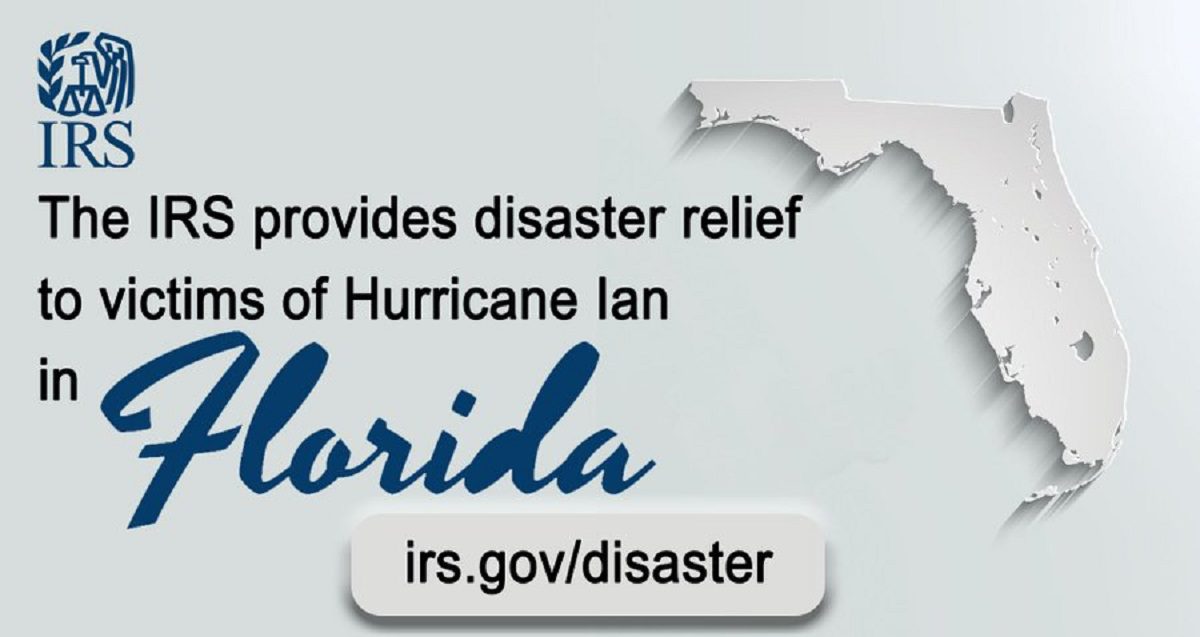
Victims of Hurricane Ian that began September 23 in Florida now have until February 15, 2023, to file various individual and business tax returns and make tax payments, the Internal Revenue Service announced today.
Following the recent disaster declaration issued by the Federal Emergency Management Agency, the IRS announced today that affected taxpayers in certain areas would receive tax relief.
Individuals and households affected by Hurricane Ian that reside or have a business anywhere in Florida qualify for tax relief. The declaration permits the IRS to postpone specific tax filing and tax-payment deadlines for taxpayers who live or have a business in the disaster area. For instance, deadlines falling on or after September 23, 2022, and before February 15, 2023, are postponed through February 15, 2023.
#IRS extends deadlines, provides tax relief for victims of #HurricaneIan in Florida. See https://t.co/6C2dPE8Qhr pic.twitter.com/9DKAuQpyqQ
— IRSnews (@IRSnews) September 30, 2022
This means individuals who had a valid extension to file their 2021 return due to run out on October 17, 2022, will now have until February 15, 2023, to file. The IRS noted, however, that because tax payments related to these 2021 returns were due on April 18, 2022, those payments are not eligible for this relief.
February 15, 2023, deadline applies to the quarterly estimated tax payments, typically due on January 17, 2023, and to the quarterly payroll and excise tax returns normally due on October 31, 2022, and January 31, 2023. Businesses with an original or extended due date also have additional time, including calendar-year corporations whose 2021 extensions run out on October 17, 2022.
Penalties on payroll and excise tax deposits due on or after September 23, 2022, and before October 10, 2022, will be abated as long as the tax deposits are made by October 10, 2022.
Suppose an affected taxpayer receives a late filing or late payment penalty notice from the IRS with an original or extended filing, payment, or deposit due date that falls within the postponement period. In that case, the taxpayer should call the telephone number on the notice to have the IRS abate the penalty. For information on available services, visit the IRS operations and services page at IRS.gov/coronavirus.
The IRS automatically identifies taxpayers in the covered disaster area and applies for filing and payment relief. But affected taxpayers who reside or have a business outside the covered disaster area should call the IRS disaster hotline at 866-562-5227 to request this tax relief.
Read all the info on the IRS Website.

